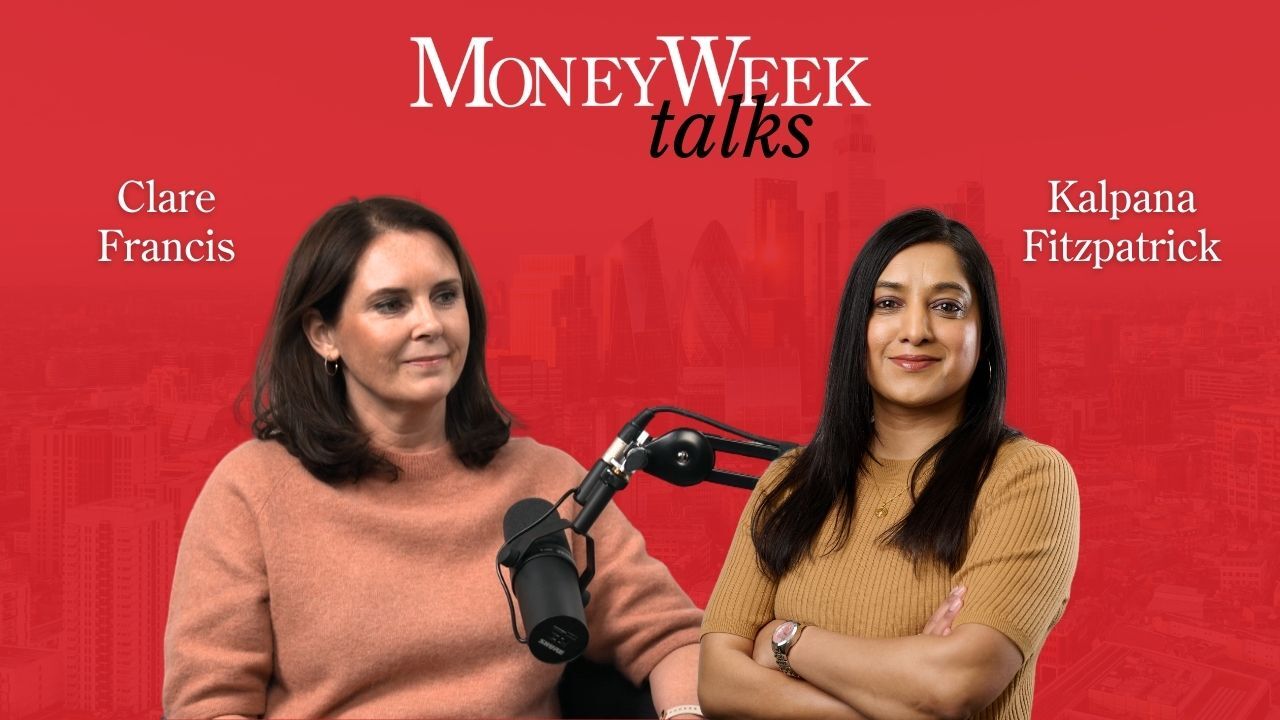Central bankers are trashing the system – here’s how to profit
Central bankers' meddling has completely distorted the financial system, and we may never get back to normal. But there are still ways to profit. John Stepek explains how.

Get the latest financial news, insights and expert analysis from our award-winning MoneyWeek team, to help you understand what really matters when it comes to your finances.
You are now subscribed
Your newsletter sign-up was successful
Want to add more newsletters?

Central bankers have become the centre of the financial world (appropriately enough).
Reams of analysis are being dedicated to the next tiny move by the Federal Reserve. When will interest rates start to normalise', and what will it do to us?
It's ridiculous. It's also something of a red herring.
Try 6 free issues of MoneyWeek today
Get unparalleled financial insight, analysis and expert opinion you can profit from.

Sign up to Money Morning
Don't miss the latest investment and personal finances news, market analysis, plus money-saving tips with our free twice-daily newsletter
Don't miss the latest investment and personal finances news, market analysis, plus money-saving tips with our free twice-daily newsletter
Central bankers have distorted the system so badly that I'm not sure we can ever get back to normal' again. Normal is gone.
It's all about psychology
Savers are a stubborn bunch they'll save whether you like it or not
Part of the point of low interest rates and financial repression is to force savers people with capital to take more risks with their money. But this entirely ignores the psychology of savers.
If you are saving money, it's because you want to keep it for something. Maybe it's not for a specific goal. Maybe it's nothing more than a shock absorber, or a safety net.
And perhaps another human being a central banker, or an economist, say would look at that, and they'd say that you're acting irrationally. That you should be making more of your spare capital. Maybe they'd even argue that you don't deserve to earn a real' return on your money because you're not taking any risks with it.
But this cuts to the core of the whole problem with economics. People aren't solely profit-maximising rational actors. We aren't machines, and we aren't homogenous. We all need different things at different times to make us feel secure and comfortable with our situations.
And if there's one driving force that you can't underestimate, it's the human craving for security.
If you come along and target all the safe havens for savings, then how does that make people with savings feel? If you tell them that to preserve their real' (after inflation) purchasing power, they have to take risks with their precious capital, then what does that do to their behaviour?
Do they feel inclined to spend more money? Or does it increase their propensity to save, to compensate for the higher risks their money is exposed to? I suspect it's the latter.
That's a pretty destructive policy when you think about it. On the one hand, you are actually increasing the desire of people with capital to hoard' it rather than spend it in a way that might be economically beneficial.
On the other, in their quest for safety, yield and a desire to preserve their purchasing power (by chasing real' assets such as property, for example), they end up driving asset prices higher so that a) they're overvalued and b) people with little or no capital feel utterly excluded from the asset-owning classes.
If you want to know who's responsible for all the angst about inequality, you don't need to look beyond the Federal Reserve and the Bank of England and all their central bank chums. They have created this insecurity and it's gone on for so long that it's hard to see how we get back to normal'.
When can we say everything is normal' again? When interest rates are back to 5%? Now that we know what central banks are willing and ready to do, how do we ever invest without considering their aims first?
How financial repression affects corporate decisions too
We've complained about share buybacks a lot. They're driven primarily by the favourable tax treatment of debt, and by skewed compensation packages that incentivise management teams to boost earnings per share in the easiest way they can by reducing the number of shares in issue.
But there's another driving force behind share buybacks, one that's intimately connected to our current environment of money printing and low interest rates.
Big institutional investors crave the certainty of income too. And if they can't get it from the bond market, then they'll get it elsewhere. Wolfgang Schaefer, chief financial officer of Continental, tells the FT: "pension funds are clearly pushing for more dividend as their returns from the bond market have been lower and they need more dividend-paying shares to meet their obligations."
And of course, given that buybacks are generally good news for management teams, they're very happy to have their arms twisted. More money on share buybacks means less money for investment of course. But that's tough.
In short, central bankers' efforts to destroy sources of safe income may be distorting behaviour to the point where it undermines their overall goal of boosting growth.
The problem, not the solution
low interest rates are part of the problem, not the solution
It's not the only problem that bankers' policies have caused. We'll be talking a lot more about that in the next issue of MoneyWeek magazine (sign up for it today if you're of a political bent, I think you'll enjoy the next issue).
But in the meantime, how can you profit from this? Well, as the FT also notes, despite the European Central Bank's best efforts, quantitative easing in Europe so far hasn't had quite the same impact as in the US.
But in the longer run, I suspect it will. ECB boss Mario Draghi has already widened the flood gates a little (at last week's ECB meeting, he hinted at further measures if necessary) and it's only a matter of time before it has the same impact as it's had elsewhere.
And as Hans Lorens at Citi tells the FT: "it seems just a matter of time before the corporate board rooms across Europe catch the shareholder-friendly bug" and erupt into mass share buybacks.
So stick with your eurozone investments at least if we recognise what central banks are doing to the system, we can profit from it.
Get the latest financial news, insights and expert analysis from our award-winning MoneyWeek team, to help you understand what really matters when it comes to your finances.

-
 The UK regions with the highest proportion of homes above the inheritance tax threshold
The UK regions with the highest proportion of homes above the inheritance tax thresholdHigh house prices are pushing more families into the inheritance tax trap across the country
-
 Are money problems driving the mental health crisis? MoneyWeek Talks
Are money problems driving the mental health crisis? MoneyWeek TalksPodcast Clare Francis, savings and investments director at Barclays, speaks about money and mental health, why you should start investing, and how to build long-term financial resilience.